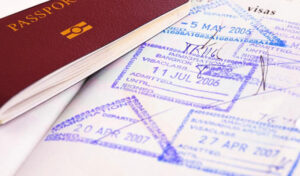A company is a juristic person and enjoys the same rights as a natural person. Similarly, it is liable for its obligations in the same way as a natural person.
There are several steps involved in registering a Thai Limited Company. These include choosing a business name, organizing a statutory meeting, and submitting the company application to the Department of Business Development (DBD). Here is a brief overview of each step.
Choosing a business name
Choosing a business name is the first step in starting a Thai limited company. This can be done online with the Department of Business Development (DBD). Generally, three names are proposed, and then ranked by preference. Approval usually takes up to 3 days. Certain names are not allowed, including those that resemble the royal family, ministries, or government agencies, and those that violate public morality or are misleading.
Try to use rhyming in your company name to make it more memorable and engaging. You can also get inspiration from literature, mythology, or pop culture to find a creative name that works for your business. Once you have a name, you’ll need to create a Memorandum of Association. The MoA will contain important information about the company, such as its name, address, province, and the amount of share capital.
Creating a Memorandum of Association (MOA)
The Memorandum of Association is an important document used to register a Thai limited company. It should be submitted along with the application for registration. It should include the name of the company, its business objectives and registered capital. It should also list the names, addresses, and occupations of the promoters. The documents must be signed and certified by a witness.
The MoA of a company defines the types of shares to be issued and outlines the rights of shareholders. It also states that the company is a juristic person, meaning it has its own rights and obligations independent of the shareholders.
Once the MoA is ready, a statutory meeting is organized to make all appointments and resolve any disputes. It should also decide on the number of ordinary and preference shares.
Organizing a statutory meeting
When starting a business in Thailand, it is essential to convene a statutory meeting after the company name reservation and drafting of the MOA/AoA/MoU. The purpose of this meeting is to approve the internal documents of the company and elect the Board of Directors and an auditor.
This meeting will also confirm the identities and shareholdings of the initial shareholders. This is important in order to avoid any disputes later on and maintain transparency in the company’s ownership structure.
All the shares in a Thai limited company must be fully paid up before they can be transferred. The total amount of the paid up shares must be stated in the MOA along with the names and nationalities of all the shareholders. If it is impossible to call the statutory meeting within the prescribed period, the promoters should apply for an extension of time to the Registrar in writing, explaining the reasons for their delay.
Registering the company with the Department of Business Development (DBD)
Registering a Thai limited company provides third parties, including investors and bankers, with a clear picture of the company’s business operations. This includes the company’s financial state, shareholders list, and directors. The company must also follow accounting procedures and prepare an annual balance sheet.
Once the statutory meeting has been convened, the company can be registered with the Department of Business Development (DBD). The process takes three months and costs approximately 5,500 baht. It is a good idea to have a local consultant help you with the process. The DBD will review the documents and issue a certificate of incorporation. The company should also register for taxes and obtain a tax ID number and card within 60 days of the DBD’s approval. Moreover, the company must enroll its employees in the social security system.
Registering the company with the tax authorities
A private limited company is one of the most popular forms of business in Thailand. This type of business has many benefits, including the fact that shareholders’ liability is limited to the remaining par value of the shares they subscribed for. Additionally, this type of business can be managed by a board of directors.
Companies must keep records and follow accounting procedures specified in the Civil and Commercial Code and the Revenue Code. In addition, they must register into the tax system if they are liable to pay taxes. Some businesses may also be required to register into the social security system. Opening a corporate bank account is also necessary to support the company’s transactions and operations. This can be done by submitting the company’s MoA, minutes of the board meeting and identification documents to the bank.
Related posts:










